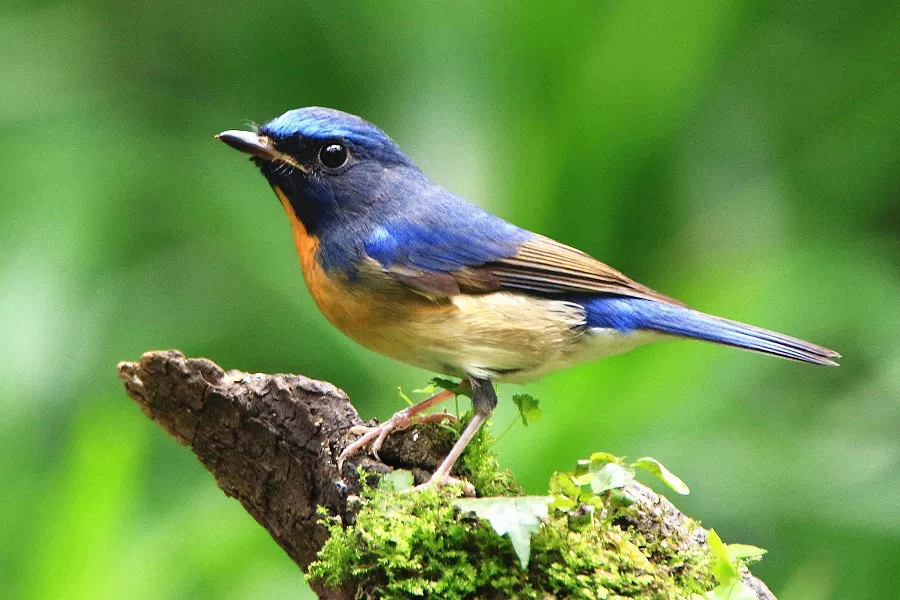Songbirds, the delightful avian creatures known for their melodious calls and enchanting tunes, have long captured the imagination of humans across cultures and ages. Their presence in gardens, forests, and urban landscapes brings joy to many birdwatchers and nature enthusiasts. While we marvel at their songs and vibrant plumage, have you ever wondered about the lifespan of these charismatic birds? In this article, we will delve into the intriguing world of songbirds and explore the factors that influence their longevity.
The Diversity of Songbirds
Before we explore their lifespan, it is essential to understand the vast diversity of songbirds. Songbirds belong to the order Passeriformes, which comprises over half of all bird species. This diverse group includes familiar feathered friends such as finches, thrushes, robins, warblers, and sparrows, among others. Each of these species exhibits unique behaviors, habitats, and survival strategies, all of which can impact their lifespan significantly.
How Long Do Thrushes Live?
Thrushes, which are a family of birds, can have varying lifespans depending on the species. On average, thrushes typically live for about 2 to 5 years in the wild. However, some species have been known live longer. For example, the American Robin, a type of thrush, has an average lifespan of around 6 to 14 years, but individuals have been recorded living up to 13 years or more.
How Long Do Magpies Live?
Magpies have an average lifespan of about 5 to 7 years in the wild. However, some magpies have been known to live up to 20 years or more in captivity. The lifespan of a magpie can be influenced by various factors such as predation, disease, habitat conditions, and availability of food.
How Long Do Sparrows Live?
Sparrows have an average lifespan of about 2 to 3 years in the wild. However, some sparrows have been known to live up to 10 years or more in favorable conditions. The lifespan of a sparrow can be influenced by various factors such as predation, availability of food and shelter, and diseases. In captivity, where they are protected from predators and provided with proper care, sparrows may live longer, with some reaching up to 15 years.
How Long Do Crows Live?
Crows typically have a lifespan of about 7 to 8 years in the wild. However, some crows have been known to live up to 20 years or more in captivity.
How Long Do Cardinal Birds Live?
Cardinal birds, also known as Northern cardinals (Cardinalis cardinalis), have an average lifespan in the wild of around 3 years. However, some individuals may live longer, with the maximum recorded lifespan being about 15 years.
It’s worth noting that cardinal birds kept in captivity, such as in aviaries or zoos, tend to have longer lifespans compared to their wild counterparts due to the reduced risks of predation. In captivity, they can live up to 20 years or more with proper care and nutrition.
Factors affecting the lifespan of songbirds
The lifespan of songbirds is influenced by various factors, both intrinsic and extrinsic. One crucial intrinsic factor is the size of the bird. Generally, smaller songbirds tend to have shorter lifespans compared to larger species. This is because larger birds often face fewer predation risks and have greater energy reserves to endure harsh environmental conditions. Additionally, genetics play a vital role, as some songbirds inherit genes that bestow a longer life expectancy.
Exceptional Longevity Records
While most songbirds have relatively short lifespans, there are exceptional cases individuals that have defied the odds and lived significantly longer. One such example is the Common Redpoll (Acanthis flammea), a small finch species known for its distinctive red cap. In 2016, a banded Common Redpoll was recaptured in Alaska, making it the oldest recorded individual of its species at an astonishing 11 years old.
Captive Songbirds: Extended Lifespans
In captivity, songbirds often enjoy longer lifespans compared to their wild counterparts. The absence of predation, availability of consistent food sources, and veterinary care contribute to their increased longevity. For instance, the European Goldfinch (Carduelis carduelis) has been known to live up to 15 years in captivity, surpassing its average lifespan in the wild.
Conclusion
Songbirds, with their enchanting melodies and vibrant plumage, bring joy to our lives. While their lifans may be relatively short compared to larger bird species, songbirds have evolved remarkable adaptations to enhance their chances of survival.


 Facebook
Facebook  Instagram
Instagram  Youtube
Youtube 